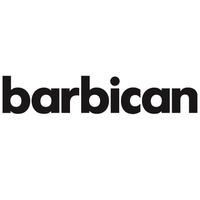Official programme text for Holly Herndon's performance of PROTO at the Barbican
Words by Brit Seaton
Read online here or scroll for full text
Brit Seaton talks to Holly Herndon about community, collective singing and AI music.
In her pursuit to find the sound of ‘now’, electronic musician Holly Herndon feeds back something decidedly more visceral than clashing audio from multiple browser tabs.
Long-awaited, the Berlin-based artist’s third album PROTO finds solace in the power of collective singing and reclaiming human agency over artificial intelligence. In her live performance tonight at the Barbican, Herndon is accompanied onstage by an extended vocal ensemble and a newly developed audio-visual experience.
Monumental shifts have occurred in our technological epoch since Herndon’s 2015 release of Platform. Where this LP offered a prophetic warning about the manipulative nature of centralised social media platforms, PROTO emerges at a time when, in Herndon’s words, ‘everyone is racing to create the next protocol upon which aspects of society are ordered.’ Retooled with new technology, Herndon shifts her focus towards creating community and forming collective resistance.
PROTO’s title, which Herndon illuminates as a reference to ‘new states for human expression and organisation’, also manifests as the album presents a new kind of ensemble between human and machine. At the heart of Herndon’s recent work is the birth of a new collaborator: a budding AI called Spawn. ‘Like a child, she is observing the activities of her parents and their community, and attempting to slowly make sense of the world around her,’ Herndon says.
Developed with artist and philosopher Mathew Dryhurst and ensemble developer Jules LaPlace, Herndon’s ‘AI Baby’ is learning her own sonic vocabulary through sessions in the studio and public vocal training. The sounds she produces come from her imagination, as she attempts to imitate how Herndon and her collaborators would sound singing them. As Herndon explains, ‘Spawn is a member of the ensemble like any other, and contributes ideas to the work as an equal. This is a special, and symbolic, relationship to develop with the subject matter.’
If the album sounds abstract by concept, you’ve heard nothing yet. PROTO continues Herndon’s progressive marriage of underground, club-ready currents with academic music theory — an experimental tendency perhaps exemplified in the single Godmother, created with Jlin (ft. Spawn). As Spawn imitates a Jlin track in Herndon’s voice, a rapid fire of humanly impossible staccato shudders are layered with the breathy, digital murmurs of a beatboxer 3.0. Beyond vocal laws, it’s an anthemic ode to the uncanny valley.
‘’Godmother’ is obviously a really ugly piece of music, but that was the point,’ Dryhurst comments. ‘So many idealizations of this music will sanitize it. This was an illustrative piece of music for where the tech is at. It’s a raw moment of Spawn creating percussive sounds from her own imagination like a baby babbling and mimicking its parents. Humans replicate digital processes; digital intelligences replicate humans.’
While Herndon’s maternal instinct towards nurturing AI recalls the subversive energy of technofeminism, it also marks a new direction for the adoption of machine learning processes in music at large. Herndon explains: ‘Most AI music projects have been focussed on creating automated musical forms, rather than changing the possibilities of the way that music sounds. We find the latter approach far more compelling — this is not about replacing a human, but instead about observing and augmenting human habits.’
‘When you research the topic of AI, you cannot help but consider that despite kitsch narratives of inhuman robot dystopias being common, developing a symbiotic relationship with AI is actually quite a natural next step for us as a species. This message is an important one to be seeded creatively and politically, as these technologies begin to play a larger role in our personal and professional lives.’
For Herndon and her collaborators, this mutualism with AI is a radical yet essential gesture, particularly when used to reimagine the historical notion of collective singing as a survival tool. As Herndon announced in a Twitter thread, the bracing choral track ‘Frontier’ was written in homage to the tradition of Sacred Harp singing from her birthplace of East Tennessee. About this music, she wrote: ‘shape note singing may be a descendent of the same Proto singing traditions that early humans took with them to all corners of the world, which is poetic, as when I sit and listen to examples of that music, it feels like a kind of fundamental universal collective fight music.’
Which is partly why I conceived of the song in relation to the climate challenge,’ Herndon continues. ‘I thought that maybe now would be a good time to revisit that millennia-old resilient technology.’
From choir singer in the southern US Bible Belt to blazing trails as a Berlin club kid, Holly Herndon now takes the official title of Doctor after completing her PhD at Stanford University’s Center for Computer Research in Music and Acoustics. Her doctoral research and thesis examines the ethics and aesthetics of AI in music. PROTO puts the theory into practice.
In the album’s press release, Herndon affirms her belief that humans don’t have to be automated off stage: ‘I’d like for people to have a sense of agency when approaching technology in their lives. I want them to know there’s a future that doesn’t sound like the past. It doesn’t have to be some sort of sci-fi hellscape where the machines take over. It can be beautiful.’

